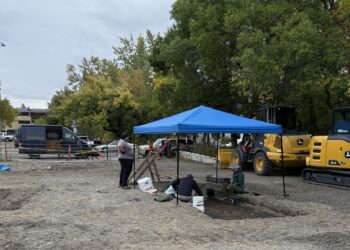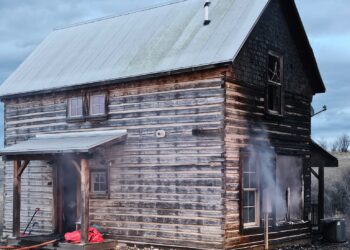With seven deed-restricted properties in the ‘Good Deeds’ program, the Big Sky Community Housing Trust aims for more after collaborative grant from Elevate Big Sky
By Jennifer Clancey DIGITAL PRODUCER
In Big Sky, no good deed goes unnoticed. After exhausting the Good Deeds program budget halfway through its inaugural fiscal year, the Big Sky Community Housing Trust knew that the local workforce is interested in owning affordable Big Sky homes.
Good Deeds started in the spring of 2022 and aims to preserve existing housing for working residents, provide grants for downpayments and place permanent deed restrictions on properties for people serving the Big Sky community. The program takes after efforts in similar towns, like Vail’s InDeed program.
On June 22, Elevate Big Sky provided Good Deeds with a collaborative grant totaling to $1.39 million: $800,000 from Resort Tax and $560,000 from Elevate Big Sky’s board.
Ruthi Solari, director of community impact at the Yellowstone Club Community Foundation discussed the grant’s significance to Elevate Big Sky: “When we first formed Elevate Big Sky in 2022, there was 100% consensus that affordable housing was the number one issue that has been most urgent to the funding partners, our corporate leaders as well as the community,” she said.
She describes Elevate Big Sky as “a collaborative giving framework, bringing together public and private dollars to leverage funds and encourage collaboration in the community.”
For the housing trust, this is an opportunity to continue to keep local workers and families in the Big Sky area.
“I arrived here at a time when it was still possible to arrive in this community and work hard and integrate into the community and…and start a life here and buy a house and start a family… and that’s a cycle that is no longer doable,” David O’Connor, executive director of the housing trust said.
“This is one of the primary tools that we’ll be able to use to try to open up a path for today’s Big Sky residents that has been open for the rest of us up until now,” he added.
A property placed under a deed restriction through Good Deeds prevents the home from becoming a short-term rental, requires the home be workforce occupied and allows for Big Sky workers to live in the area. Good Deeds participants also avoid common hurdles like high down payments on properties. This is important especially for owners who can afford the monthly payment but are stopped by hefty upfront costs.
“So, in that instance, it’s a down payment assistance grant,” O’Connor explained.
Good Deeds has seven deed-restricted properties under their belt so far, which has helped the housing trust project the number of homes they can secure in a year’s time.
“We think the market pace is about 20 per year,” O’Connor said. “We’re just getting started. What we would like to get to is something that looks like 20% of the total properties that are priced under a million and a half.”
O’Connor explained that this 20% target is likely decades away.
Deed restrictions have become a way to preserve communities in blossoming resort towns across the West. O’Connor hopes that the method may attract potential homeowners who bring value to Big Sky.
“It’s an old tool, but using it this way, is a new idea.”














